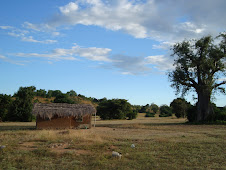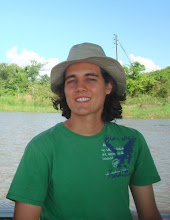
After 6 months of volunteer work, I came back from Malawi and on May 15 I arrived at my school, CICD (College for International Co-operation and Developmant), in England. I started the last period of the volunteer program called “Camp Future”. This is the evaluation period of what you have done in Africa as a volunteer and you can share your experience with the DI’s at some schools in Europe that have the same DI Course as CICD. I decided to go to Spain to do part of my Camp future. So, on May 23 I arrived at L’Ametlla del Vallès (40km from Barcelona) where there is a DI program that is similar to the 6 months of DI Course in CICD. In L’Ametlla del Vallès there are also the facilities to collect and sort second hand clothes and shoes that, after, go to the shops in Africa and Spain. As a result for the DI’s in Spain, they can work with maintenance of the container used to collect clothes on the streets, and they can work at the assortment of clothes.

The first week I worked on maintenance of containers used to collect clothes on the street. I worked together with a DI from Spain, Oliver, in a car that I was the driver and in the other car Camp Future DI’s Mihong and Flavio worked with DI Cristina. This work consists of painting and put new stickers on the containers on the street located in the cities around Barcelona. On Tuesday, as it was on the work plan, I presented for DI’s in Spain my experience in the projects in Malawi. For me I was surprised that I had only one presentation for the entire week.

On Saturday, I went to a second hand clothes shop (Ronda de la Universitat) in Barcelona to see how the second hand clothes shop is, to talk to the staff and customers, and do leafleting for clothes sales. It was nice to see the difference of this shop in Spain and the shops in Malawi, where I worked as volunteer. On Sunday I went to the shop in Parallel Avenue, Barcelona, to see one more shop, take pictures, and talk to the staff and customers. The shops in Spain are much better because of nice decoration, cleaned facilities, proper price tags, good ambient lighting, nice showcase and many others things. I could see how the shops in Malawi can improve. One problem that I found was that the staffs of the both shops and customers hardly speak in English. But I could talk to them as I know a little of Spanish and I speak Portuguese.

In the second week, I and other DI’s went to Salou, a city 140km from L’Ametlla del Valès, where we participated in the week of biodiversity of Salou. We were there to explain to children about the importance of recycle clothes for the environment and to explain more about the process of collect clothes that Humana does in Spain. There was also an activity that children decorated Humana buckets, used to collect money. They decorated the buckets with pieces of second hand clothes and colourful paints. This was a nice activity to show the community how Humana works in Spain so the people could connect the clothes that they donate with the volunteers in the projects in Africa, because DI’s that are enjoying the program were there to talk to people.

In the weekend, I went to Olesa de Montserrat, 60km from L’Ametlla de Valès, where other DI’s and I participated in an open fair with many different social institutions. There were the institutions’ stands with posters and leaflets to show about their activities. We were there to explain about Humana in Spain, DI program, and projects in Africa. We also brought some buckets for children do some decoration on it with paints and pieces of second hand clothes. It was a nice event where we could explain about Humana but we didn’t have a proper stand as the other institutions had, so we were there from 9:00 to 14:00 on the sun!
The idea of this last period called Camp Future is to share your experience from Africa with the DI’s who are going to there and also to evaluate your activities as a volunteer. I did some of these activities here in Spain like when I gave my presentation to DI’s about my project in Malawi, when I went to that event in Salou or the event in Olesa de Montserrat. I had a nice time in Spain but I feel like I could have done more activities with the DI’s related to what I learned in Malawi or what I think is important for them to learn from me to use in Africa.




























